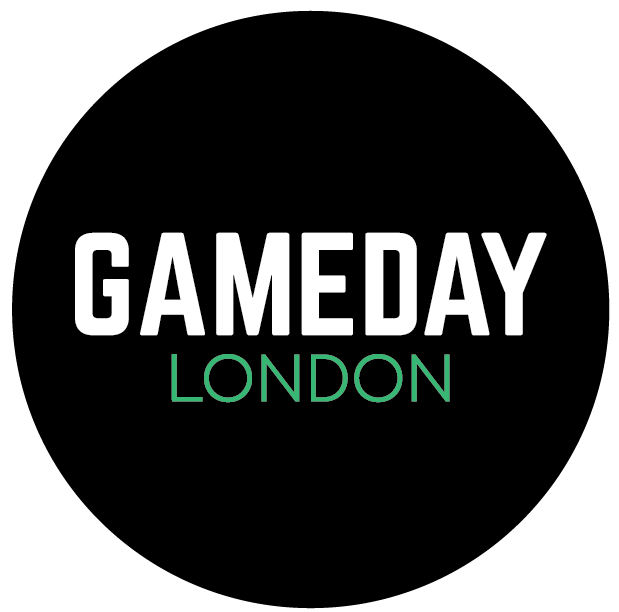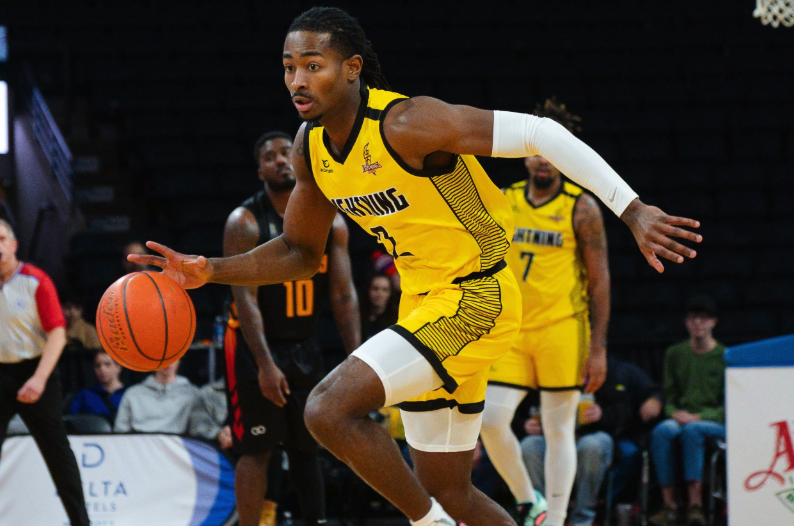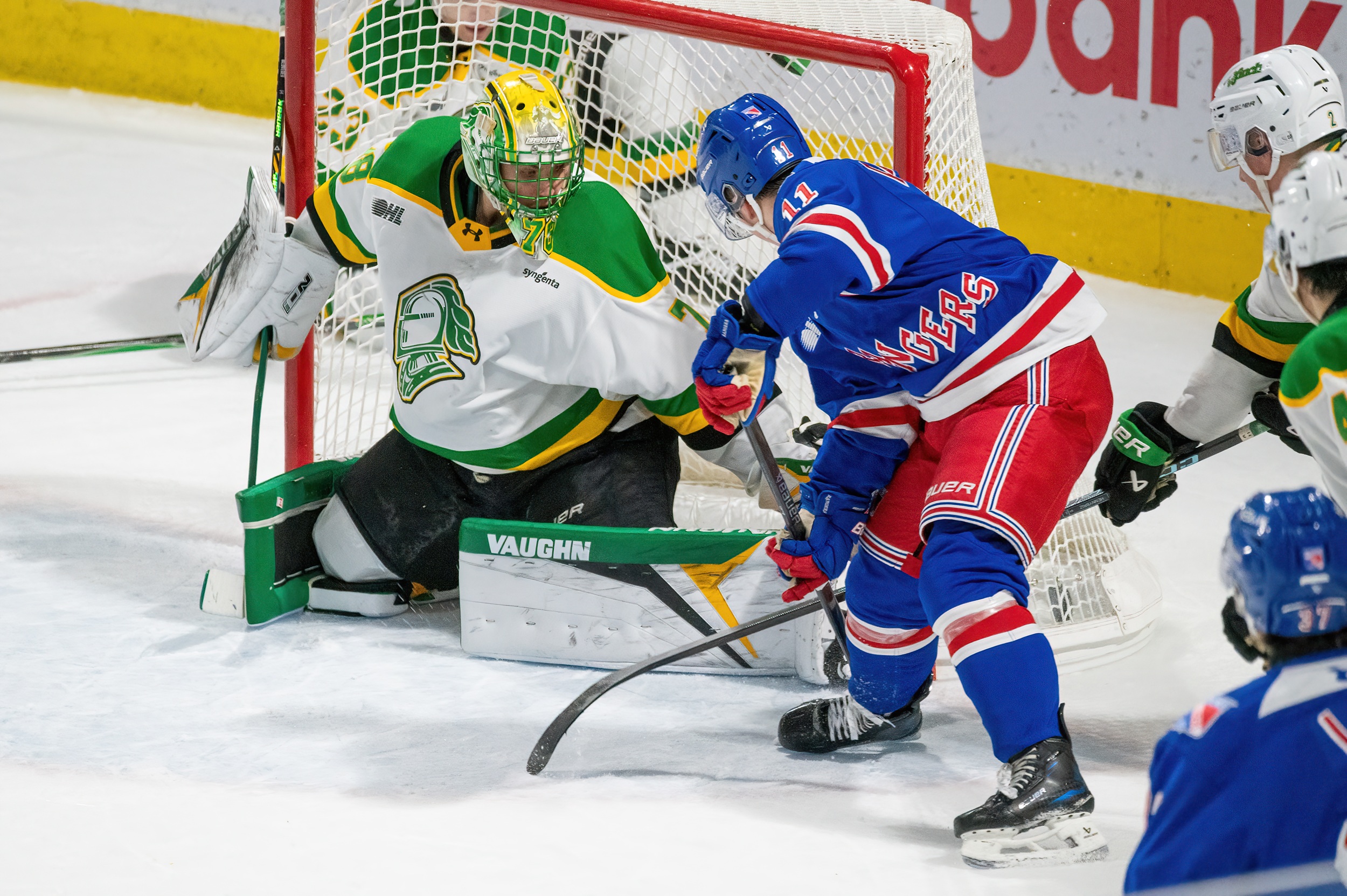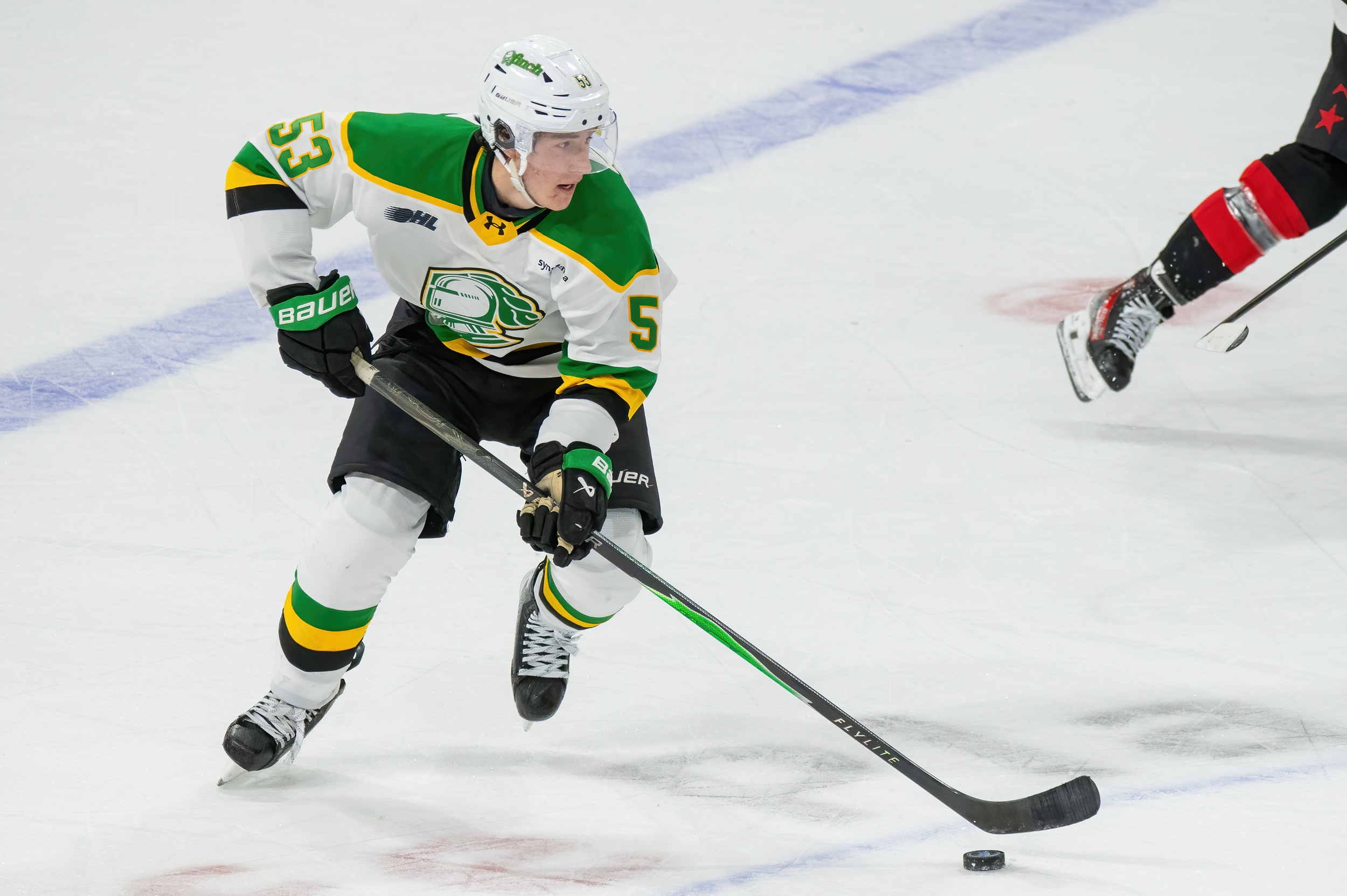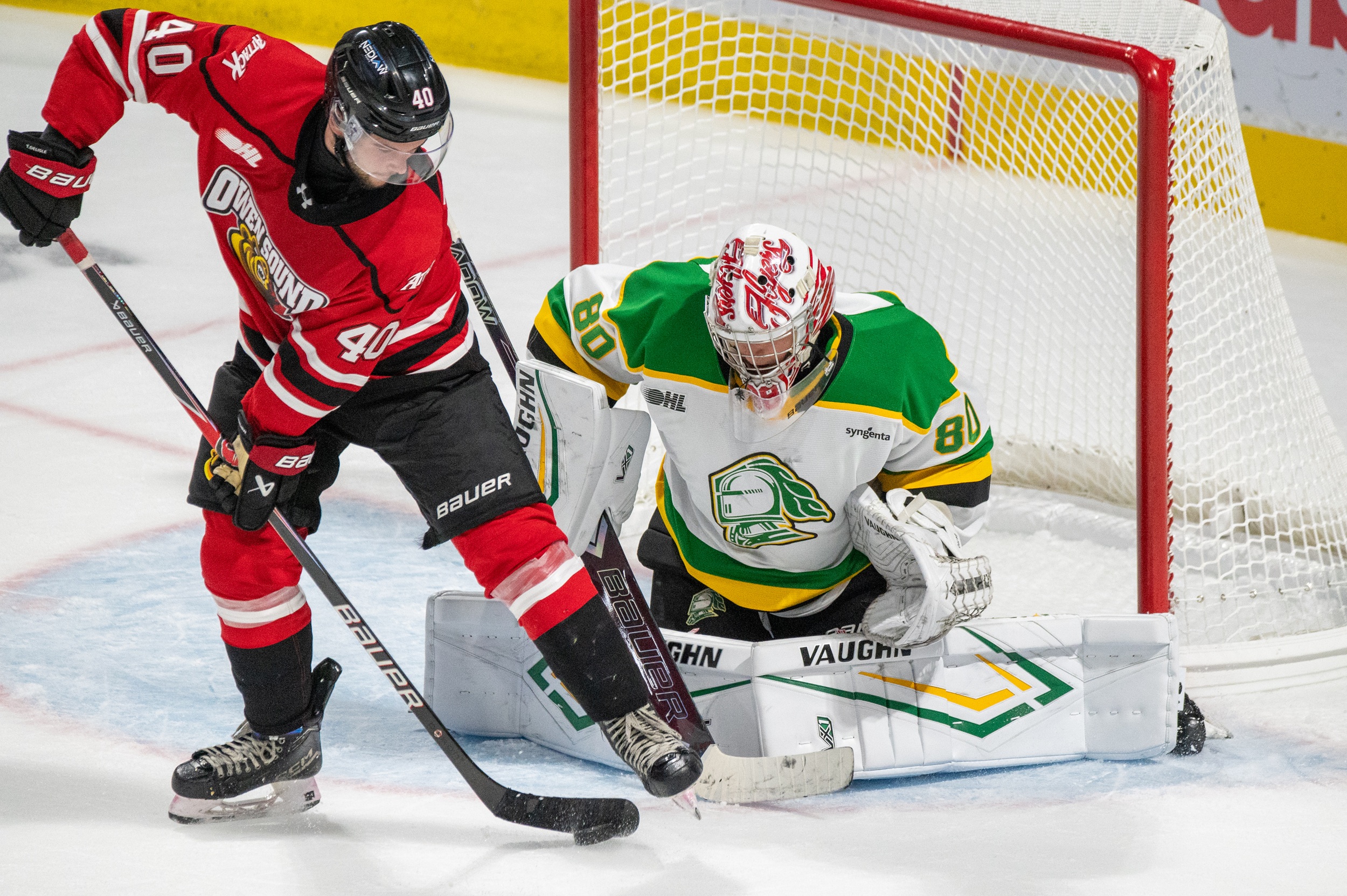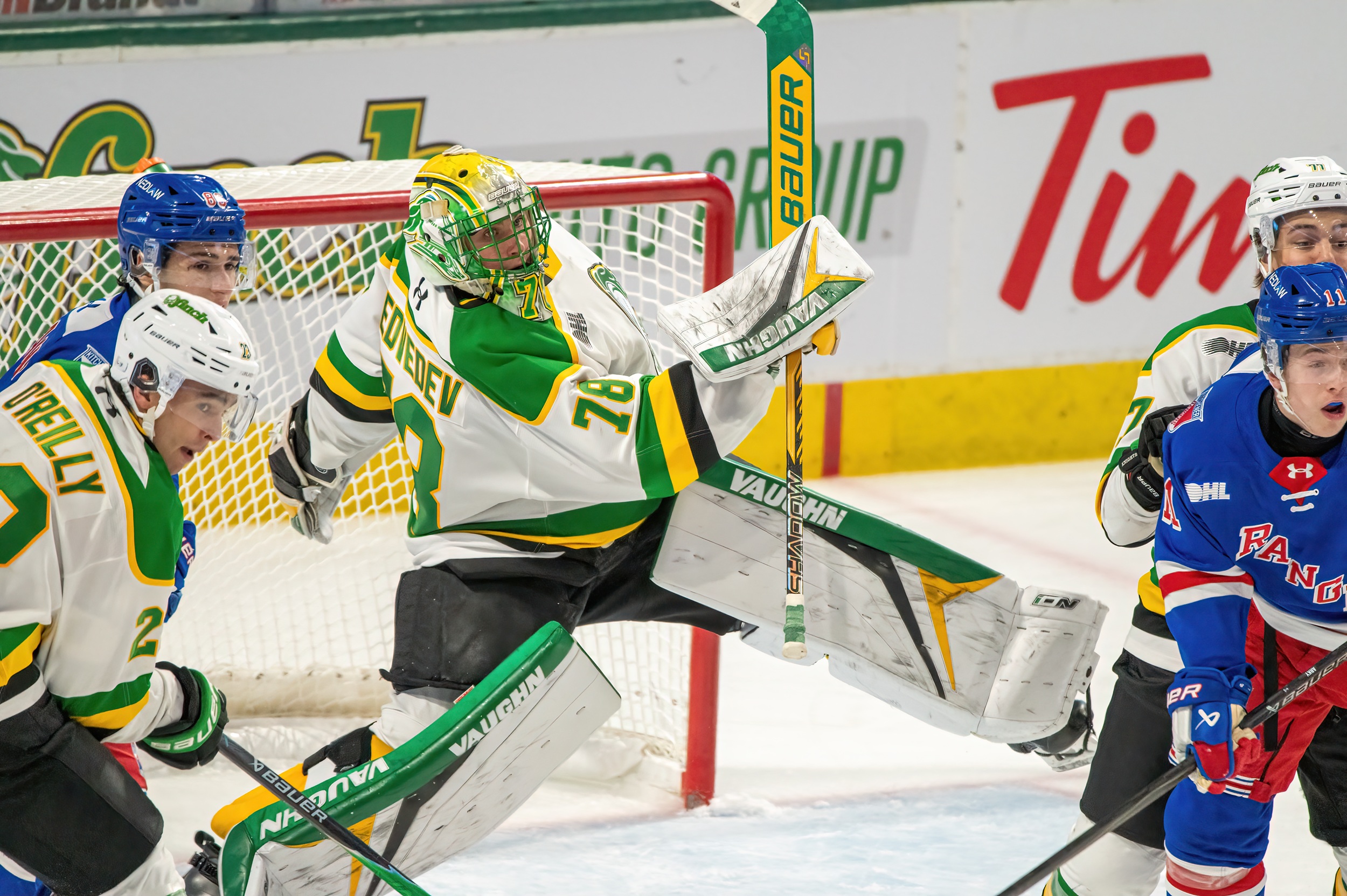|
Getting your Trinity Audio player ready...
|
Jachai Taylor, aka Turbo, the uber athletic London Lightning guard, is embracing creativity — on the court and in all facets of his life. It’s been freeing — and fun.
Jachai Taylor has spent a life in motion.
On and off the court, ‘Turbo’ lives up to his nickname. But last year, in a league thousands of miles from home, he met something unfamiliar: silence.
No late-night calls. No familiar voices. Just long, empty hours in a city that felt vast and distant. At first, it was unsettling. Then, it was a revelation.
“I was unsure if I would be able to handle that. I was miles and miles away from home. But I ended up loving it, embracing it,” Taylor explained. “It was weird, but the silence gave me a chance to reflect on things I never had the chance to reflect on. I dealt with my thoughts. The challenges. Everything up there. I could deal with it head on. That helped me.”
When his time in the Middle East ended suddenly, Turbo rocketed back to London with a new understanding that speed and volume aren’t everything. Knowing when to pause matters, too.
That lesson shapes him now — on the court, in his creative pursuits, in life. The game has given him the world. At 27, he’s now figuring out what to do with it.
* * *
A Canadian, a Bosnian, and an American walk into a Middle Eastern gym sounds like the opening of a hackneyed joke, but it was Taylor’s life as one of three international player imports on Al Nassr Riyadh, a Saudi-dominated team. He was enjoying his time, playing well personally, with his team among the league’s best.
“But, like they say, you can only control what you can control,” Taylor said.
The Chicago native thought he had found a perfect landing spot. Heading there following a championship run with the Lightning last season, it was the opportunity guys like Taylor pounce on – great money, solid league, notable team.
It was his first international opportunity outside of North America – not bad for a kid from the Midwest.
“I tried to imagine what my mom would be thinking. Her boy in Saudi Arabia (although she would probably tell me not to go to Saudi Arabia). But once I came here, I would have FaceTimed her to show her everything. She’d think it was so beautiful,” he said.
“I’m happy that I got to experience that. When I think about it in hindsight, not many people even get to leave their country, and here I am, able to see the world because of basketball.”

Taylor found more than new opportunities for his game. He found new parts of himself. There was a silence that came with being half a world away from family and friends (and so-called friends, as well), and with that silence came the chance to look inside.
He knows how that sounds – a little cheesy – but it’s all true.
“I learned a lot about myself. I learned about a lot of people. You find out who rides with you. People will forget about you, but they won’t forget you. Outside of family, the phone would be sometimes dry. For weeks, I was talking to the same people. Of course, when I signed back in London, boom, boom, boom, boom, boom – they all came back. Hey, I thought y’all lost my number of something,” Taylor said.
During his three months in the desert, he found a peace he didn’t expect.
“I learned that I actually enjoy being alone. There was something about it. It brought a lot of good peace. Each day, I was able to reflect on the day. This was my first international experience, and I am in Saudi Arabia, the capital. I am eating their food. Meeting the people. Making friends.”
Then it all came to a sudden end.
“One random night, I’m chilling in my room, doing my usual routine, watching YouTube, and my coach calls me down to the lobby. That’s when he told me they were releasing me,” he said.
Taylor knows it comes with a life in the game. Cut from his G League squad three times before landing in London last year, he knows the drill. “But that doesn’t make it easier. It still sucks.”
Taylor laughed as he continued, “GMs sometimes can’t always be the smartest people, but what they say goes.”
* * *
The Arabian Peninsula’s loss, however, turned into the Forest City’s gain.
Returning to London, Taylor found GM Mark Frijia was more than happy to bring his championship guard back. Things had changed, however, as new head coach Jerry Williams was bringing in a new system – a change Taylor welcomed.
“I knew it’d be a little bit different. But maybe I would have a little bit more freedom to play my game. So, it made a lot of sense to me to be back in London,” he said.
That’s the thing about coaching changes – new systems mean new opportunities for new players, but what about the guys bridging the two systems?
Last year, Taylor was a solid piece for the inaugural BSL championship squad. Playing in 40 games, he averaged 9.3 points, 3.4 rebounds and .4 assists in 19.1 minutes per game on his way to being named the BSL’s Sixth Man of the Year.
Taylor believed his role on the team was strictly defined. Even starting 19 games, he felt he could do more.
“Last year, I was playing a role. I was more of a shooter. I was able to adapt, but I didn’t feel like I really was playing my game. We had a really good team top to bottom. Really good. But I think everybody on that team was itching to do more.
“But what we had was working, so let’s just go with what’s working. That’s not wrong. That was a team where everybody had to put their egos aside. If I have to come off the bench, start knocking down some threes, get rebounds, blocks, at least at the end of the day I’m contributing.”
* * *
Bet you don’t know how deep that nickname runs.
Turbo. That goes back to his gamer tag on Xbox – Jturbo23 – in high school. It followed him to Murray State (Murray, Kentucky) and Queens University (Charlotte, NC.), albeit shortened to simply Turbo. He wasn’t sure he loved it – it stuck with teammates before it did for himself.
It grew on him, however, to the point where he started introducing himself simply as ‘Turbo’ at the pro level. It was at that point he started seeing a deeper meaning behind it.
“People don’t know the meaning of Turbo. People think it’s just a name. But for me, I feel like Turbo is an experience. It’s a purpose. It’s impactful.”
It also has meaning behind every letter:
T – Toughness.
U – Underdog.
R – Relentless
B – Believer.
O – Optimistic.
“All those things align with how my life has been from the time basketball became my love – all the adversity, all the stuff. It resonates with me. Yes, Turbo is a good flashy name, but it has absolute meaning behind it. Turbo is impactful. It says: ‘He is not just a basketball player. He connects with people. He can do so much. He not just a basketball player. He’s just not one dimensional. He’s anything he believes he is.’”
Even his mama, Schavonne Monique Taylor, loved the Turbo lifestyle. On the two-year anniversary of her death, Jan. 13, Taylor shared a photo of ‘Mama Turbo’ from his rookie year in Windsor.
During the pandemic, it was mama, in fact, who helped shape the idea of Turbo. How about steering into it fully, she asked? Then the brainstorming started: Maybe a brand. With gear. Turbo for Men. Turbo for Women. Turbo Tots. Turbo totes.
“I want to do so much with it,” Taylor said. “When the average person meets a basketball player, they’re like, ‘Oh, that’s nice.’ But when that person meets me, they see I do basketball, but then a lot more.”

* * *
Taylor is seeking opportunity in change.
So far, this season has mirrored last statistically for Taylor (9.1 points/2.9 rebounds/.7 assists/21.3 minutes per game) – although it’s how he is compiling those numbers that has him in a different place.
“I’m seeing a bigger role on offense and definitely one as a main guy on defense. Coach wants me to be more of myself. Last year, I felt like I had a little bug in my ear. I was like, ‘Oh shit, if I miss this shot or I turn the ball over, am I going to get taken out? Now, I have more freedom to make mistakes.”
He noted quickly, “You don’t want to keep making the same mistakes, though, but I feel like coach is super understanding.”
Taylor feels a greater sense of freedom to be himself on the court and is growing more comfortable with each game. Under a less rigid system, he finds himself making plays he might not have attempted. He appreciates the team’s offensive approach which prioritizes spacing and allows players to create opportunities – something that has always come naturally to him.
His shot is improving, and physically, he feels great. He thrives in the team’s new focus on fast-paced play. With recent additions still learning the system, he wants them to recognize his speed and trust that if they see him sprinting down the court, they can throw the ball up, and he will go get it.
“The more games go on, I get more comfortable, playing my game, showcasing more. I guess you could say I feel like basketball is slowly getting back being fun again for me,” he said.
But freedom, he warned, doesn’t mean free from responsibility.
“We (The players) got what we wanted – a coach that allows us a lot of freedom. But we have got to become better at managing that because sometimes it gets a little too free out there. We get to looking really crazy. When we’re good, we are flowing. Everybody playing. If somebody makes a mistake, we don’t harp on it. We go on to the next play.
“We asked to have a coach who was going to give us a lot of leeway and freedom. Let’s not mess it up. I just want to enjoy the game, play ball, and win.”
* * *
The Turbo documentary has been rolling for years, capturing snippets of his life on YouTube. Part reality show, part hype reel, part confessional, part wholesome chronicle, Taylor’s personality shines through the screen.
“It is important for me to get all this around me. It’s not just for people to see, but for me to be able to look back on years down the road.
Basketball may be his first love, but creativity pulses through every part of his life. Music. Modeling. Content creation. His portfolio extends far beyond the court. There was that influencer spot for Target. The music, which he describes as therapeutic, letting him channel his thoughts in a positive way. The relentless urge to create, instilled in him from a young age.
“Since I was younger, people always told me, ‘You’re gonna be famous someday. You’re gonna be Hollywood,’” Taylor laughed. “There’s so much I can and want to do; it’s hard sticking to just one thing. But basketball is my first love. It’s something I picked up and never stopped doing.”
His entrepreneurial mindset was sparked early, largely influenced by his older brother, Jibri (a.k.a Jibrizy), a magician, model, and content creator with millions of followers. Taylor credits him for shaping his approach to creativity and business, teaching him how to turn ideas into reality.
“He’s the most creative person I know.”
Their childhood was filled with early-morning hustle — catching the metro train to downtown Chicago to film street magic videos, brainstorming content ideas late into the night. The rule was simple: Nobody was leaving until they had eight to 10 original ideas. Some nights, that meant staying up until 2 or 3 a.m.
“We would sit there and come up with ideas the entire night. I used to hate it. But now I appreciate it. He made me use my creative muscles a lot more. I look at the world as a creative thing. That’s why it’s hard for me to be a one-dimensional guy.”
That mindset extends to basketball. Taylor sees the sport as an art form — something fluid, expressive, and deeply personal.
“Basketball is a creative sport. Some of the most exciting players create on the court. But creativity doesn’t have to stop there. Music is creative. Content is creative. I just enjoy it all.”
He understands the reality of a playing career — how it doesn’t last forever, how so many athletes get caught up in the grind without thinking about what comes next. He’s determined not to fall into that trap.

“Players who aren’t in the big leagues like the NBA need to think about how to make themselves more marketable. At the end of the day, people buy from people they like. Basketball doesn’t last forever. You get consumed by the lifestyle — train and train, play and play – and if that’s all you know, you never find out what else you’re good at.”
He encourages other players to explore their passions, to build something of their own. A side hustle, a skill set—something that lives beyond the game.
“Basketball will take care of itself. That’s the easy part — waking up, working out, taking care of your body. But when you get to a point where basketball becomes second nature, you have to ask yourself: what else? What are you going to do to complement this?”
This season, Taylor feels freer than ever — not just on the court, but in life. He’s embracing his creativity, stepping into his full identity as an athlete, entrepreneur, and artist.
“This year, I am happy I get to create more, be myself more. It makes it fun.”
